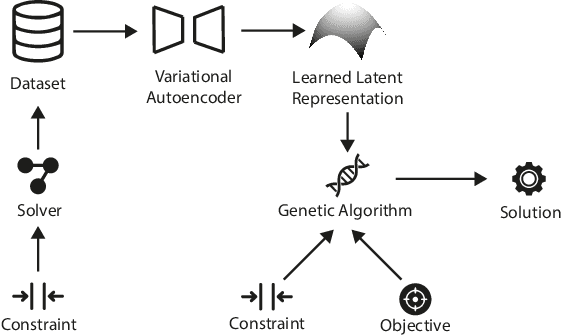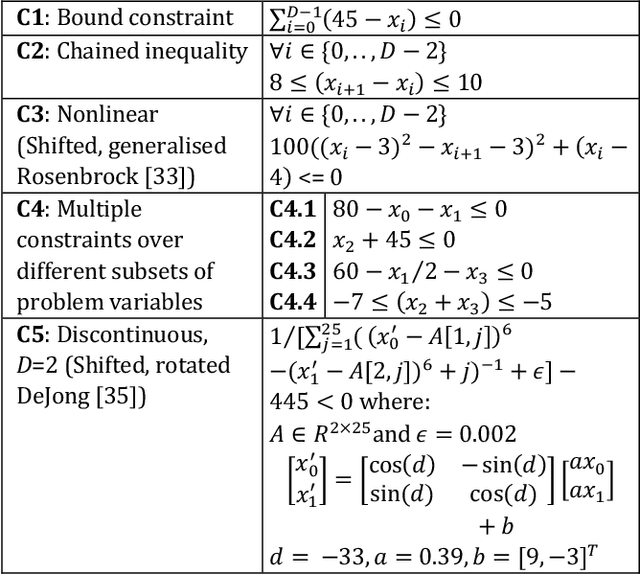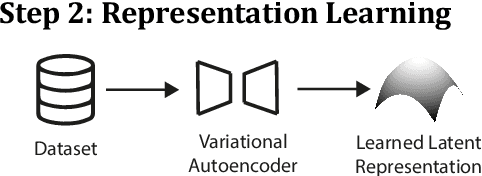COIL: Constrained Optimization in Learned Latent Space -- Learning Representations for Valid Solutions
Paper and Code
Feb 07, 2022



Constrained optimization problems can be difficult because their search spaces have properties not conducive to search, e.g., multimodality, discontinuities, or deception. To address such difficulties, considerable research has been performed on creating novel evolutionary algorithms or specialized genetic operators. However, if the representation that defined the search space could be altered such that it only permitted valid solutions that satisfied the constraints, the task of finding the optimal would be made more feasible without any need for specialized optimization algorithms. We propose the use of a Variational Autoencoder to learn such representations. We present Constrained Optimization in Latent Space (COIL), which uses a VAE to generate a learned latent representation from a dataset comprising samples from the valid region of the search space according to a constraint, thus enabling the optimizer to find the objective in the new space defined by the learned representation. We investigate the value of this approach on different constraint types and for different numbers of variables. We show that, compared to an identical GA using a standard representation, COIL with its learned latent representation can satisfy constraints and find solutions with distance to objective up to two orders of magnitude closer.
 Add to Chrome
Add to Chrome Add to Firefox
Add to Firefox Add to Edge
Add to Edge